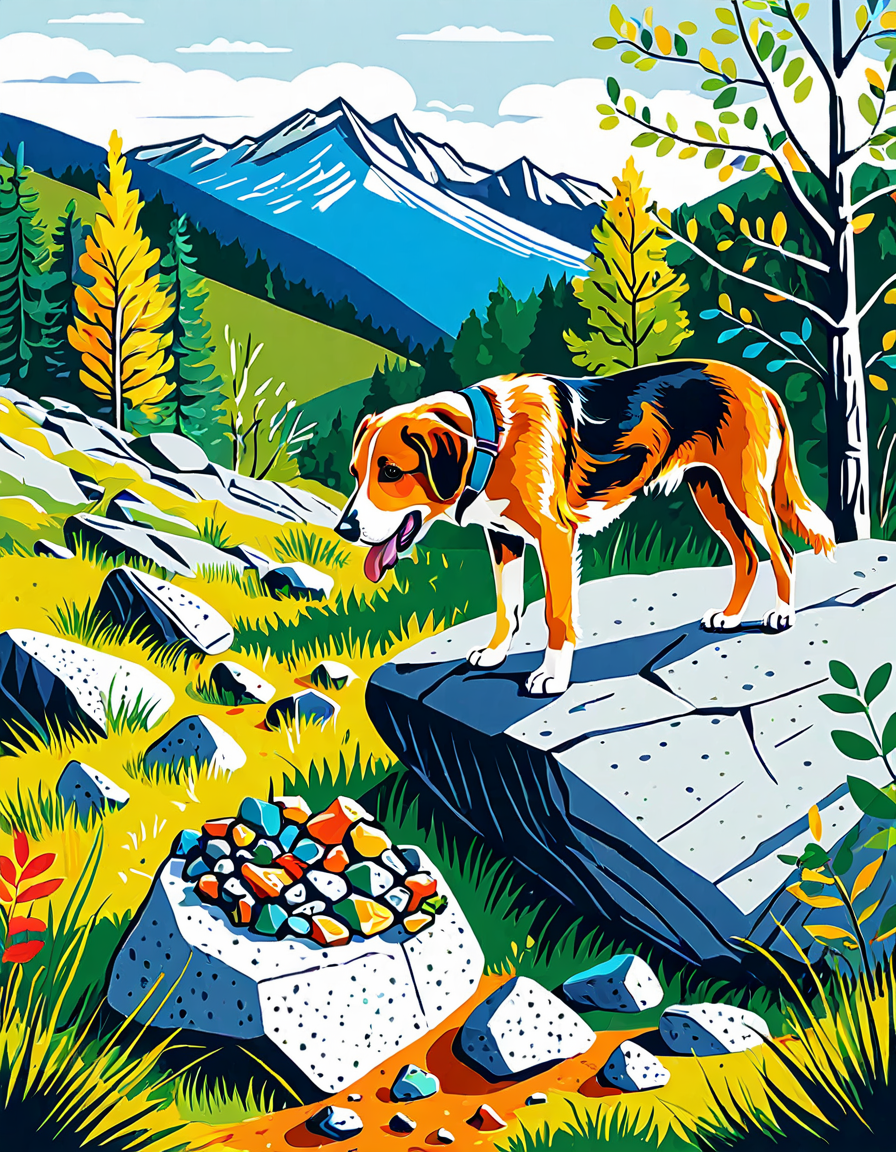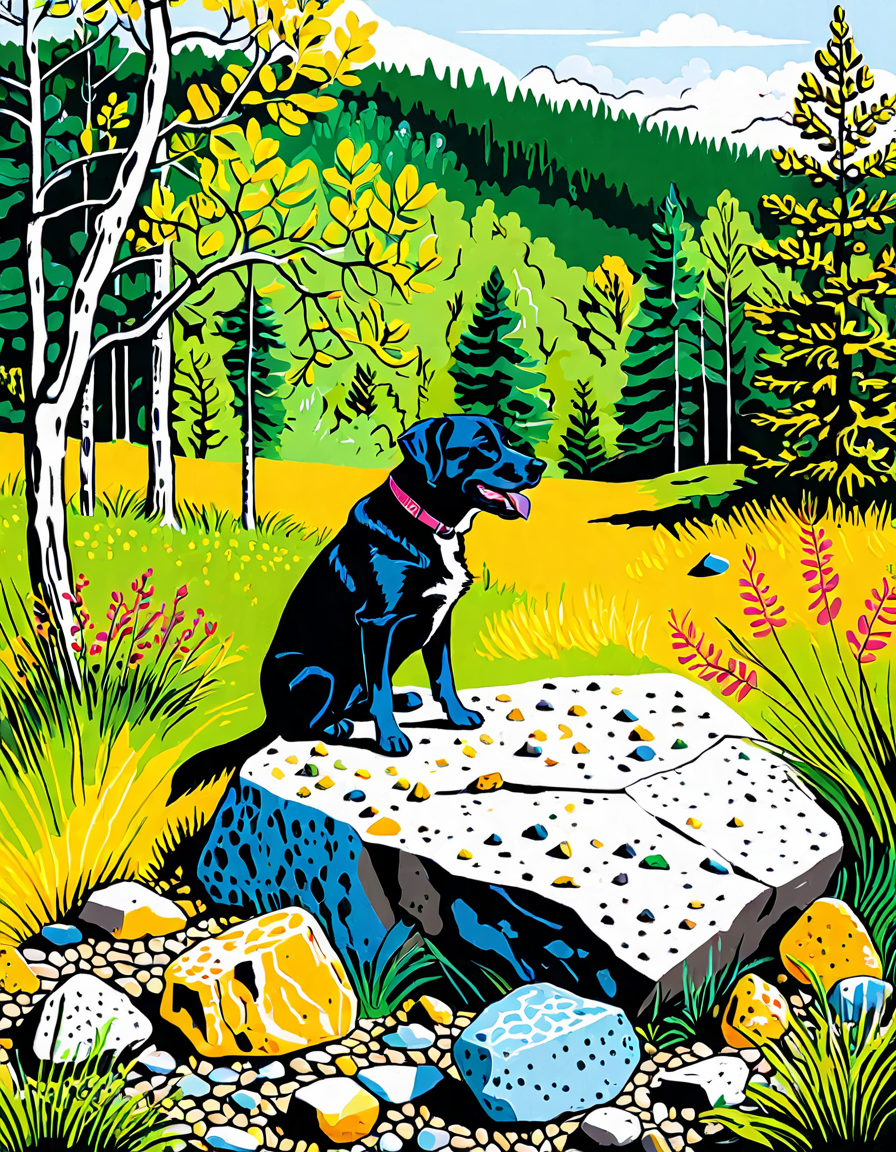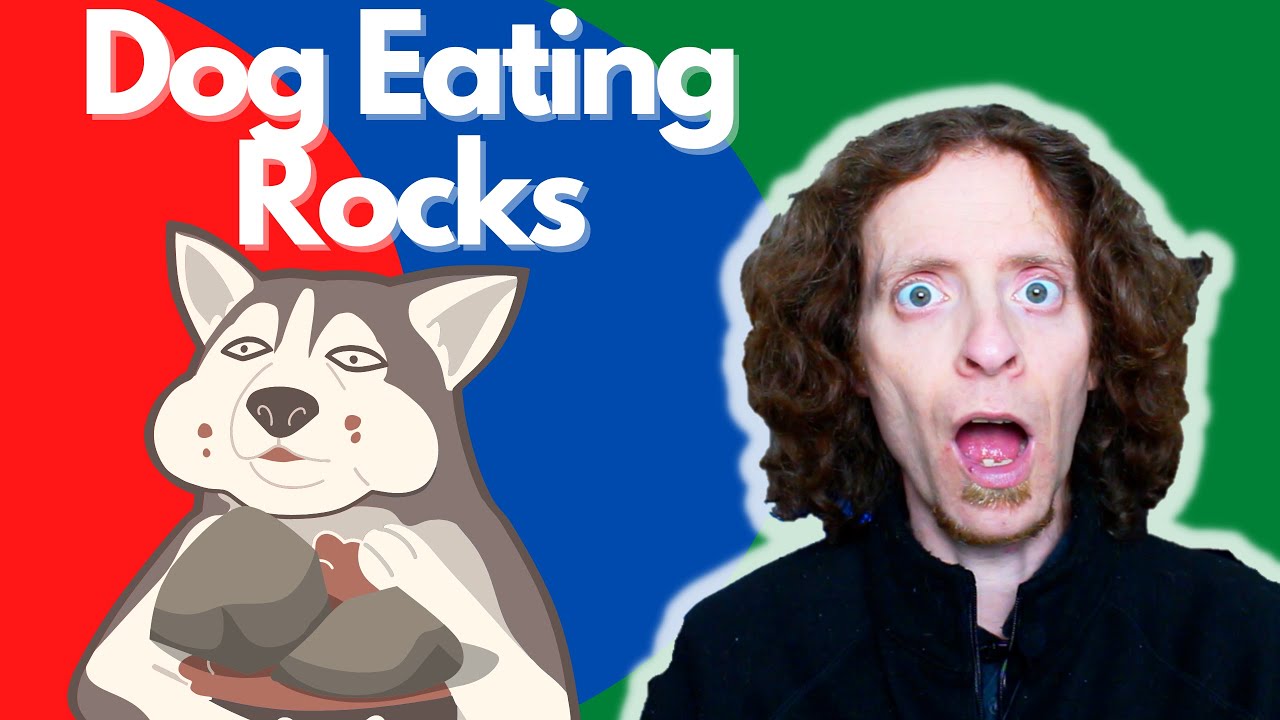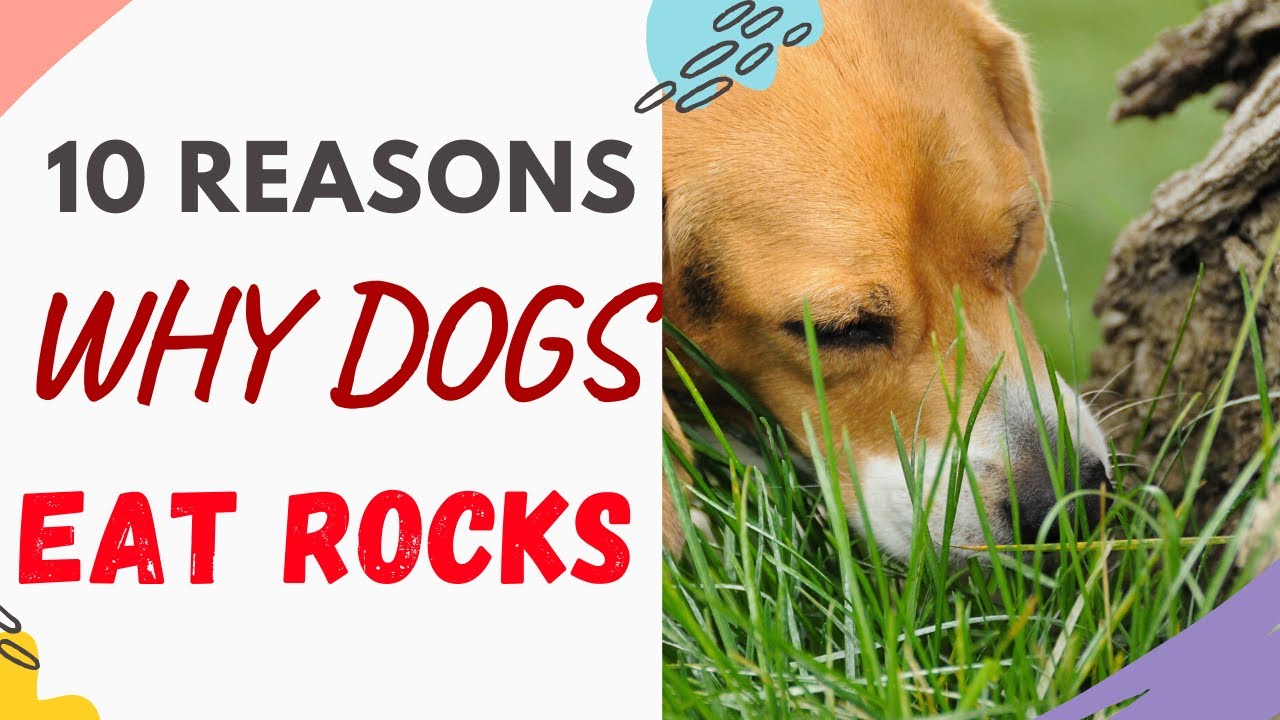Dog owners often find themselves scratching their heads, wondering, “why do dogs eat rocks?” This unusual behavior can be perplexing and may stem from several underlying causes. While it might seem like just a quirky trait, understanding this phenomenon—known as pica—is crucial for any pet owner. Eating rocks can lead to serious health problems, so let’s dive into the reasons behind it and explore what it signifies for your dog’s well-being.
Nutritional Deficiencies
One major reason dogs might chew on rocks is nutritional deficiencies. If a dog’s diet doesn’t provide adequate vitamins and minerals, they might turn to non-food items to satisfy cravings. Research from the Association of American Feed Control Officials highlights that canines consuming low-quality food can develop mineral deficiencies, prompting them to eat things like rocks. Feeding your dog a balanced diet from reputable brands like Royal Canin or Hill’s Science Diet can help avoid these cravings. Ensuring your furry friend receives the right nutrients helps keep their curiosity in check—no rock buffet needed!

Behavioral Issues and Anxiety
Dogs sometimes eat rocks as a response to anxiety or stress, much like how humans might indulge in nail-biting. This compulsive behavior may stem from various situations, like separation anxiety or loud noises. To tackle this, consider employing anxiety-reducing strategies. Products like Thundershirts can provide relief to anxious pups, while pheromone diffusers create a calm atmosphere at home. By being proactive and addressing stress through training and environmental adjustments, you can curb such destructive habits.
Boredom and Lack of Stimulation
Is your couch potato pup chewing on rocks? It might just be boredom. Many dogs don’t get enough physical or mental stimulation, leading to unwanted behaviors like rock-eating. The best way to keep your dog engaged is to provide regular exercise and interactive toys. Whether it’s a game of fetch or toys like the KONG Classic Dog Toy, keeping them busy can help steer their focus toward positive activities. After all, an entertained dog is a happy dog, reducing the chances of them resorting to rocky snacks.

Exploratory Behavior
Curiosity is a natural trait in dogs, especially puppies. They explore their surroundings using their mouths, much like how kittens play with strings or feathers. When puppies are teething, they may chew on rocks as a way to relieve discomfort and satisfy their urge to explore. Providing a variety of safe chew toys from trusted brands like Nylabone can help channel this instinct into healthier habits. Engaging their curiosity in safer ways is key to preventing rock consumption.
Medical Conditions
Sometimes, the reason behind why do dogs eat rocks might have more to do with underlying health issues. Conditions such as pica or dental problems could drive dogs to consume inedible items. If you suspect that your pet’s rock-eating behavior could be linked to a medical concern, a visit to the veterinarian is a must. Blood tests and a thorough examination can help identify any hidden health problems needing attention. The sooner you uncover the cause, the better it is for your pup’s health.
Attention-Seeking Behavior
Many dogs are natural attention-seekers, which can lead to behaviors like rock-eating. If a dog discovers that eating rocks gets a big reaction from their owner—even if it’s negative—they may continue the behavior. Positive reinforcement is crucial here. Encourage good behavior by rewarding your dog when they play with appropriate toys, and ignore unwanted actions. This helps establish a pattern of favorable behavior and keeps your dog focused on more constructive ways to gain your attention.
Mimicking Other Animals
Dogs often mimic the behaviors of other animals, including their canine buddies. If a dog sees another pup chewing on rocks, they might try it for fun or out of curiosity. This imitation is often harmless but can lead to dangerous outcomes if it involves eating inedible objects. To combat this, keep an eye on how your dog interacts with others. Teaching them appropriate behaviors can help discourage this mimicking, ensuring they stay safely away from rocky snacks.
Understanding the Implications for Your Dog’s Health
Understanding why dogs eat rocks goes beyond satisfying curiosity. The health implications are serious. Ingesting rocks can cause severe injuries, including gastrointestinal blockages, dental erosion, and even internal injuries. It’s important to observe your dog’s behavior closely and provide plenty of appropriate chew toys. Regular veterinary check-ups and consultations are also key to maintaining your dog’s health.
Keeping your pet healthy goes beyond merely feeding them and providing a home. Understanding behaviors is essential, whether it’s why dogs eat rocks or why do cats smell good. Knowledge helps solidify the special bond between you and your furry friend. Just like how understanding why do Bunnies thump can clarify their moods, knowing the reasons behind your dog’s behaviors promotes better companionship.
Fostering a Healthy Environment
Creating a healthy environment is fundamental for your dog. Prioritizing a mix of proper nutrition, effective dental care, and mental stimulation can drastically improve their behaviors and prevent issues like rock-eating. Quality pet food, consistent health check-ups, engaging activities, and positive reinforcement training are building blocks for success.
Ultimately, comprehending the reasons behind why dogs eat rocks helps create a safer, happier life for your furry companions. With a proactive approach, your pets can thrive not only as delightful partners but as meaningful members of your family.
By being informed and attentive, you ensure your dog lives a long, healthy, and joyful life together with you. So the next time you catch your pup eyeing a rock, you’ll know exactly what to do!
Why Do Dogs Eat Rocks: The Head-Scratching Reasons Behind This Behavior
Curious Canines and Their Obsessions
Ever found yourself wondering why do dogs eat rocks? It’s a puzzling behavior that seems both bizarre and concerning for pet owners. Some dogs might munch on pebbles or stones out of sheer curiosity or boredom. Just like how some humans can’t resist a morsel of gourmet Swiss cheese, dogs may feel an instinctive need to explore their surroundings through taste. This behavior can also bring to mind why do Dogs eat Sticks, which is another odd but common quirk.
Moreover, certain rock-eating antics could be related to nutritional deficiencies. For instance, if a furry friend lacks minerals in their diet, they might turn to less-than-ideal sources of nutrients, such as stones. Just like how one might turn to kidney beans for protein, dogs may seek rocks when they’re missing some essential elements in their meals. However, it’s always wise to check in with your vet instead of playing guessing games about your dog’s cravings.
Health Risks: Not All That Glitters Is Safe
While the notion of why do dogs eat rocks might seem funny at first, it’s essential to understand the potential health risks involved. Rocks can chip teeth or cause gastrointestinal blockages, which is no laughing matter. Imagine the chaos of a furry friend needing emergency care—it’s far from ideal! Keeping a close eye on their habits is crucial. And when discussing curious habits, have you ever thought about how they can feel like Chris Kattans antics in a comedy sketch?
The consequences aren’t just physical; behaviorally, this act can indicate underlying issues. Dogs may chew rocks out of anxiety, boredom, or even a desire for attention—something to think about! Observing things like changes in your pet’s eating habits or other compulsive behaviors may lead you to wonder, “Is my dog stressed or simply acting foolish?” Just like Alex G channels stories through film, our pets often have stories of their own to tell through actions we might overlook.
Breaking the Cycle
Understanding why dogs eat rocks can lead to healthier habits and happier pets. If you notice your dog’s fascination with rocks escalating, distraction techniques or chew toys might be a more suitable alternative. Providing engaging activities, like trips to the park, can keep their minds sharp and bodies active, avoiding the compulsion to snack on stones. With the right attention, you can redirect them from rock munching to fetching. If they need more variety in their diet—like enjoying safe foods, remember to check out what they can safely eat.
In the end, no one wants to feel abandoned by their pet in terms of health—or even entertainment. Just like the wait for the next release of a popular show like Geek Girl Season 2, waiting for new tricks or behaviors from your dog can be a journey. Understanding their quirks and providing them with a loving environment can lead to healthier decisions, breaking the cycle of rock-eating and ensuring your four-legged friend thrives.






